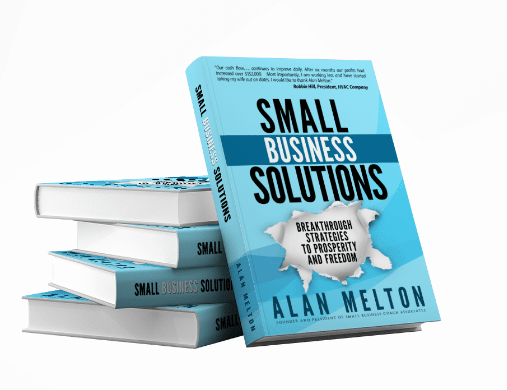VIEW BY TOPIC
- Finding Customers
- Business Systems
- Managing Employees
- Leadership
- Managing Money
Related Posts

Ready to Grow Your Business Fast?
Here’s How I Grew Five Businesses, and Eventually Sold One to a Fortune 500 Company.

How Tiny Tech Startups are Disrupting Big Industries
A David against Goliath conflict is a common trope in the ever-changing landscape of today’s technology business. The little, nimble entrepreneurs that are trying to carve out a niche seem to be lost in the shadow of the enormous behemoths like Google, Apple, and Amazon. But if you scratch the surface, you’ll see that these small tech startups are doing better than fine. This essay explores how these technological “Davids” are shaking up established markets.
This narrative revolves around the underdogs stepping into the spotlight, defying conventions, and reshaping the dynamics of the industry. Emerging tech ventures are no longer overshadowed by the dominant corporations; instead, they have emerged as the leading characters in their own stories. A prime illustration of this trend is the ascension of the S21 Ultra Pro. Amidst the tech giants, a smaller player dared to sell my S21 Ultra and caught the attention of tech aficionados. Explore the ingenious attributes of the S21 Ultra Pro and observe how it contributes to the unfolding saga of innovative newcomers leaving a profound mark.
Small Fish in a Big Pond – Navigating the Tech Industry

The tech industry is a vast ocean teeming with sharks. How can a small fish not just survive but thrive?
The barriers are immense: limited resources, fierce competition, ever-changing technology. Yet, time and again, small startups defy these barriers.
Through innovation, agility, and resilience, these small players find ways to navigate the turbulent waters. From bootstrapping to building unique products, the ways are manifold.
Take Slack, a small team collaboration tool that grew to challenge Microsoft’s Teams. Or think of Dropbox, which carved out a niche in a market dominated by giants. The stories are endless and inspiring.
More than Meets the Eye – The Hidden Strengths of Small Tech Startups
The true power of the little tech businesses comes in their less obvious qualities.
Quick thinking and originality: The Benefits of Miniaturization: Because of their size, small businesses are better able to respond rapidly to shifts in the market and experiment with novel approaches. This agility eventually becomes a major benefit.
Relationship Development: Putting a Face to a Name: Startups can afford to invest more time and energy into each of their customers since they have fewer of them. Because of this personal connection, customers tend to return.
The Importance of Team Dynamics in Creating a Distinctive Company Culture When a group is small, everyone has a greater chance of feeling like their opinion matters. This encourages original thought.
Think Big, Start Small – Scaling and Growth Strategies
It’s okay to think big even if you start off tiny. The founders of these companies typically have lofty goals. Smart scaling is a method of expanding by small increments that builds on past successes. In this approach, fledgling technology companies may expand without diluting their key competencies.
Setting ambitious yet achievable goals fuels the growth of small tech startups. They don’t just aim for the moon; they plan the journey meticulously. By forming strategic partnerships, these startups extend their reach and resources without overstretching their limits.
A Chip Off the Old Block – How Startups Emulate and Innovate from Industry Leaders
Small tech startups are not mere imitations of the big players; they are often trailblazers.
- Standing on the Shoulders of Giants: Learning from Industry Leaders: While they draw insights from the giants, they are not confined by their footsteps. They learn, adapt, and then forge their path.
- Breaking the Mold: Creating Unique Value Propositions: Their uniqueness lies in offering something different, whether in product features, customer service, or business models. This distinctiveness sets them apart.
- Paving New Paths: How Innovation Leads to Disruption: By venturing into unexplored territories and daring to innovate, small tech startups frequently become disruptors in their industries.
The Bigger They Are, the Harder They Fall – The Impact on Big Industries

Being little doesn’t make one unimportant. These new businesses will have a significant effect on established ones. These new companies are giving the established ones a run for their money by providing innovative products and customer-centric methods.
The repercussions are not limited to the realm of direct rivalry. When these businesses offer novel trends and technology, whole industries undergo radical transformations. The way these new companies are already influencing established ones is a portent of far larger shifts to come. You can’t deny the impact they’ll have on future styles.
The Tip of the Iceberg – Future Potential and Opportunities for Small Tech Startups
Only the surface has been explored thus far. Small technology firms have tremendous promise.
- Niche markets and new technologies that are ideal for fledgling businesses. Artificial intelligence, blockchain, and the internet of things all present exciting opportunities for development and progress. The route is typically blazed by nimble companies.
- Leaving a Mark: Long-Term Thinking and Sustainability: Small IT firms that succeed use sustainable methods and plan for the long term. They are not temporary trendsetters but rather beacons that the field follows.
- The Long-Term Prospects for New Tech Businesses Small technology companies have endless promise. They will remain a disruptive industry leader so long as innovation is a priority.
In spite of their seeming insignificance, many successful digital businesses have had far-reaching effects. They show how effective it may be to aim high with a modest budget. Their impact is long-lasting and will continue to shape the industry as it develops in the future. Backing and interacting with these businesses is like investing in the future of technology rather than just in an underdog.














